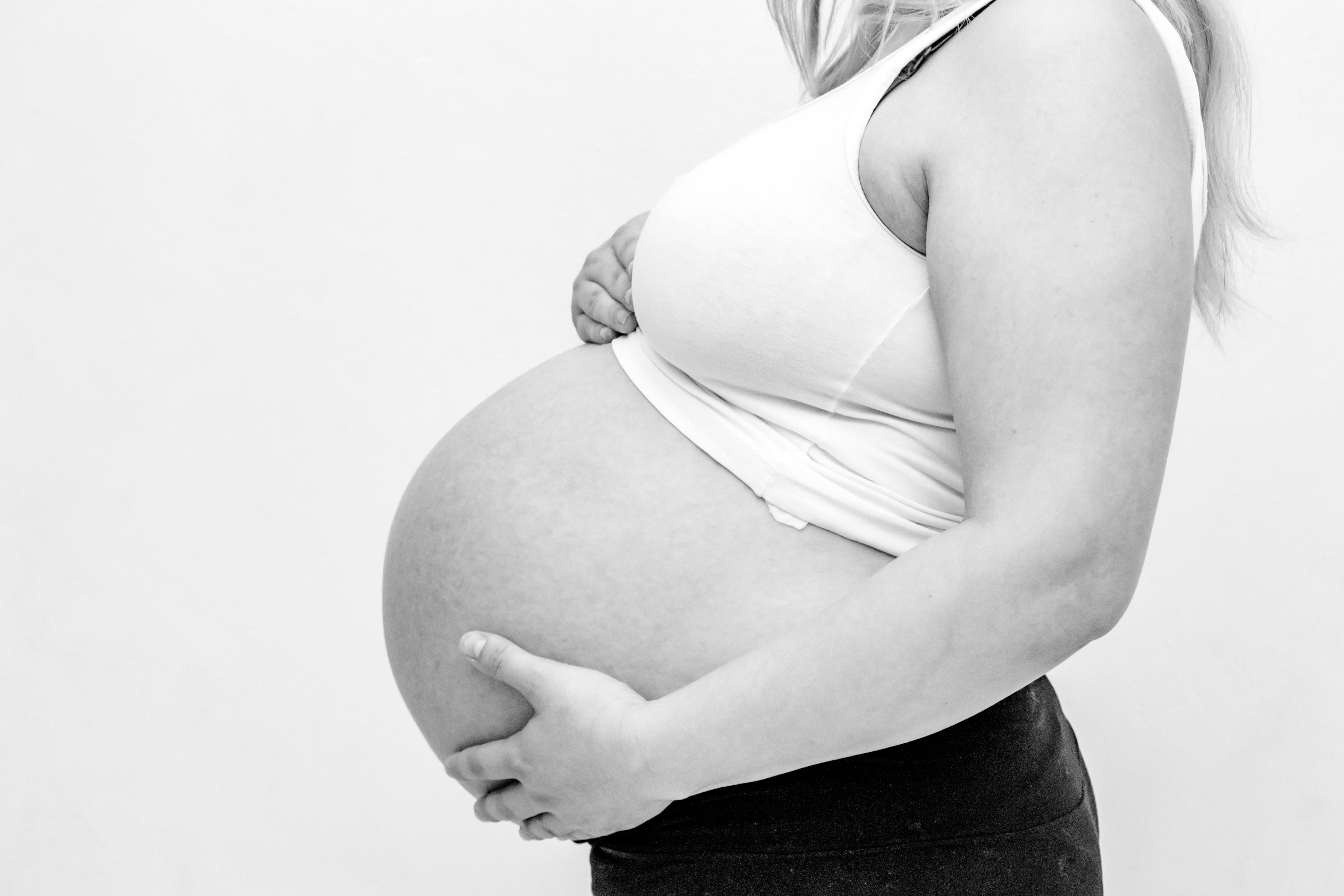Find out about gestational diabetes and learn about the risks of gestational diabetes for you and baby and how you can manage the risks naturally.
Mama, you may have heard of gestational diabetes and be wondering what it is. Or you may be close to the end of your pregnancy, and someone has mentioned a test for gestational diabetes (glucose tolerance test) while you're pregnant, and again you're wondering what that is. You may also be wondering what the risk of gestational diabetes is. We hope to give you some insight on exactly what gestational diabetes is, how it may affect your individual pregnancy and how you can manage your risk naturally. As always, prevention is better than cure right!

What is gestational diabetes?
Gestational diabetes is a condition in which women without diabetes develop diabetes (high blood sugar) during pregnancy. The condition usually presents without any symptoms; however, it may increase the risk of pre-eclampsia or c section. Women that get gestational diabetes during pregnancy cannot digest sugar properly and it can affect how you metabolise glucose and digest sugar (blood sugar levels) called insulin. Basically, this means it's due to insulin resistance. Although nobody really knows the exact cause, it is suspected that it could be caused by the placenta’s growth. As bub grows, the placenta grows also to support the baby. Sometimes, the growing placenta also releases a growth hormone that can block the role of insulin, affecting the blood glucose levels in mama's body. If your body doesn’t have enough insulin to convert the glucose into energy, blood sugar level may keep building up to high levels and hence the diagnosis of gestational diabetes.
Is Gestational Diabetes common?
It is estimated that around 3–9% of pregnancies, (depending on the population studied) will develop gestational diabetes, and it is most common during the third trimester. When we go on to look at particular age groups that develop gestational diabetes, it affects approximately 1% of those under the age of 20 and approximately 13% of those over the age of 44.

What are the risk factors for gestational diabetes?
There are range of factors that may increase your risk of gestational diabetes. Having some of these risk factors during pregnancy may mean you are at higher risk of developing gestation diabetes. Let's have a look;
-
Being overweight pre-pregnancy
-
Previously having gestational diabetes in a previous pregnancy
-
Advanced maternal age
-
Genetic factors
-
High blood pressure or very low blood pressure
-
Already being a diabetic before pregnancy
-
Have a family history of type 2 diabetes
-
If you have PCOS (polycystic ovarian syndrome)
-
Race including Pacific Islanders, Asians, African American and Indigenous Australians
What are the signs of gestational diabetes usually in pregnancy?
As mentioned before, most pregnant women don't any symptoms of gestational diabetes and don't even know they have it. This makes it really hard to make a proper diagnosis without testing during pregnancy. And to make it even trickier, many of the gestational diabetes symptoms are common pregnancy symptoms too, making it harder to identify. Don't forget to tune into your intuition during your pregnancy and if something doesn't feel right, it's best to check with your midwife or healthcare provider. Keep an eye out for any unusual symptoms from about 24 to 28 weeks into your pregnancy. So, let's look at some of the signs of gestational diabetes when they present;
-
Extreme fatigue
-
Excessive thirst
-
Frequent urination
-
Extreme nausea
-
Urinary tract, bladded or vaginal infections
-
Blurred vision

What are the tests available for gestational diabetes?
The most common screening test for gestational diabetes is called a glucose tolerance test, also called a or glucola test. This is conducted at a pathology clinic between 24 and 28 weeks of pregnancy, and usually takes around 2 hours. If you do choose to have this test, make sure you record this date in your mindful mama planner. If you have any of the known risk factors as mentioned above, you may be tested earlier. The glucose tolerance test involves drinking a glucose solution and then measuring the glucose concentration in a blood test. The glucose solution is very sweet, and some women find this unpleasant and difficult to drink and stomach. Some women may experience nausea and can feel unwell during the test.
Here’s what you can expect at your glucose tolerance test;
-
You will need to fast the evening before your test and arrive at the pathology clinic in a fasted state (book an appointment for first thing in the morning)
-
At the pathology clinic, a fasting blood sample is taken, then they’ll have you drink a syrupy solution containing 75 grams of glucose, all of which is to be consumed within 5 minutes. Once you finish the drink you will be asked to stay in the waiting room.
-
After one hour, they will take a second blood sample which will measure your blood sugar level. Again, you need to wait for another hour in the waiting room.
-
Then a third blood test is conducted and then you are free to go home, resume your usual activities and eat food.
What is the problem with the glucose test?
Well, according to research, and from a natural perspective, there are a few things that we may see wrong with the actual glucose drink. Most of the glucose drinks contain "nasty" ingredients that pregnant mamas try to stay away from. These may include artificial flavours, artificial preservatives, GMO corn syrup, glycerol ester, and vegetable oil. Some mamas report feeling very unwell during and after the test too.
There is also a chance that the glucose tolerance test may come back with the false positive result. Nearly every 1 in 4 women who tested positive for gestational diabetes don’t actually have the condition. This also works the other way, where women who do have gestational diabetes won’t test positive with the glucose tolerance test, which measures insulin resistance.

What's the alternative to the glucose test?
So, there are a couple of alternatives to the traditional glucose test. Don't forget, this isn't medical advice, and you'll need to check with your midwife or healthcare provider to decide what is best for you.
Firstly, let's consider real foods that are high in natural sugars. You could try sugary foods such as dates, fruit juice, maple syrup or a natural fizzy drink. It will need to mimic the sugary effects of the glucose drink, so it will need to be a least 75 grams of sugar. Another option that you can consider if you’re trying to avoid the test altogether is to monitor your blood sugar with a glucometer throughout your pregnancy. Ask your midwife how to do this with a glucose monitor at home. This is also a good way to check if you have low blood sugar levels during your pregnancy if need be. The Your Mindful Mama planner is an excellent tool to help you track your blood sugar readings throughout your pregnancy, so ensure you have a written record to regularly show your midwife.
How to manage the risks naturally
OK, so as we mentioned at the start, prevention is key! You want to do everything you can to prevent gestational diabetes occurring in the first place, so we have some tips below to help;
-
Maintain a healthy weight. By having a regular exercise routine before pregnancy and continuing during your pregnancy can assist in prevention of gestational diabetes and can considerably decrease your chances of diabetes later in life. Light to moderate intensity exercise is a great way to stay fit and healthy.
-
Eating well. By eating a healthy and nourishing diet which is low in processed sugar and processed carbohydrates can keep both you and baby healthy during your pregnancy, and also keep your blood sugars stable. We have a huge section on food and nourishment in our Pregnancy and Birth Planner where we discuss healthy eating and nourishment in pregnancy and post-birth. Eating healthy before and during your pregnancy reduces your risk of developing gestational diabetes.
-
Check your vitamin levels. Women who are deficient in vitamin D are more likely to develop gestational diabetes. Get outside and get some sunshine! A supplement may be necessary depending on your levels. Magnesium significantly improves blood sugar levels and also reduces markers of inflammation and cell damage. Check your blood for adequate vitamin levels to see if you're deficient in anything that may reduce your risk of gestational diabetes.
-
Rest. Easier said than done hey mama! Getting quality sleep is a priority, especially during pregnancy. Even small naps during the day can help so much. Insulin sensitivity decreases rapidly and raises your risk for gestational diabetes when you're not getting enough sleep. So, hit the pillow and get some shut eye when you can.

Conclusion
Basically, if are looking to prevent gestational diabetes or you're a woman with gestational diabetes, we hope this blog has provided you with some information to consider and discuss with your midwife or healthcare provider. Preventing gestational diabetes during pregnancy and diabetes in the future is always better than trying to manage the condition down the track. Stress also isn't good during pregnancy, so relaxing and not worrying about possible developing certain conditions is also key. It's such an exciting time when your baby is born. Our Pregnancy and Birth Planner is the perfect tool at accompany your pregnancy. It's full of invaluable information on preparing for baby, post birth, the so important fourth trimester, health and nourishment, mindfulness, yoga and movement and many more resources.
No matter what you decide with your pregnancy glucose test, remember;
-
You always have a CHOICE!
-
It is important to monitor blood sugar levels for both you and baby during pregnancy.
We encourage you to research and decide what is right for you, and always discuss with your midwife or healthcare provider. See more information about a holistic pregnancy and why we recommend it.
Note: The advice provided in this blog is general advice only and is not intended to be medical advice. Always consult with your medical team to make the best decision for your you and your pregnancy.

